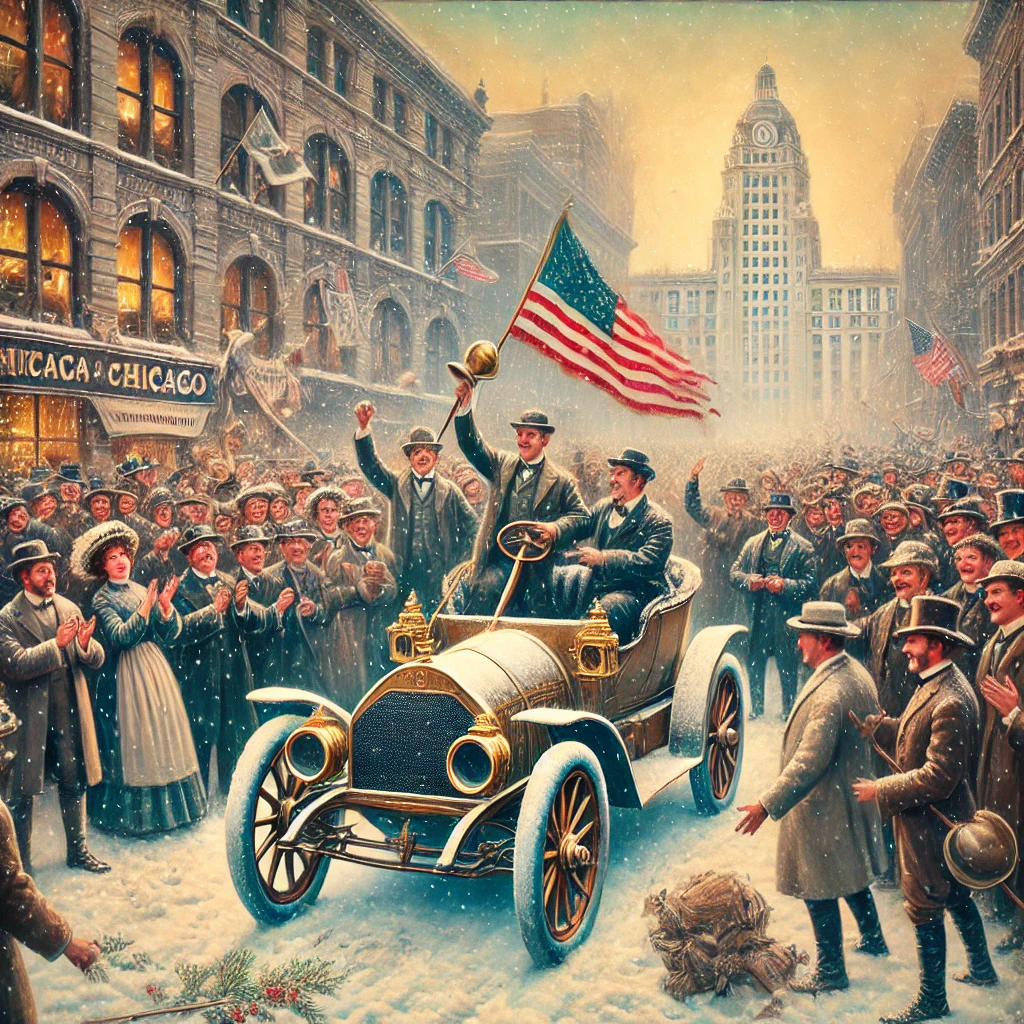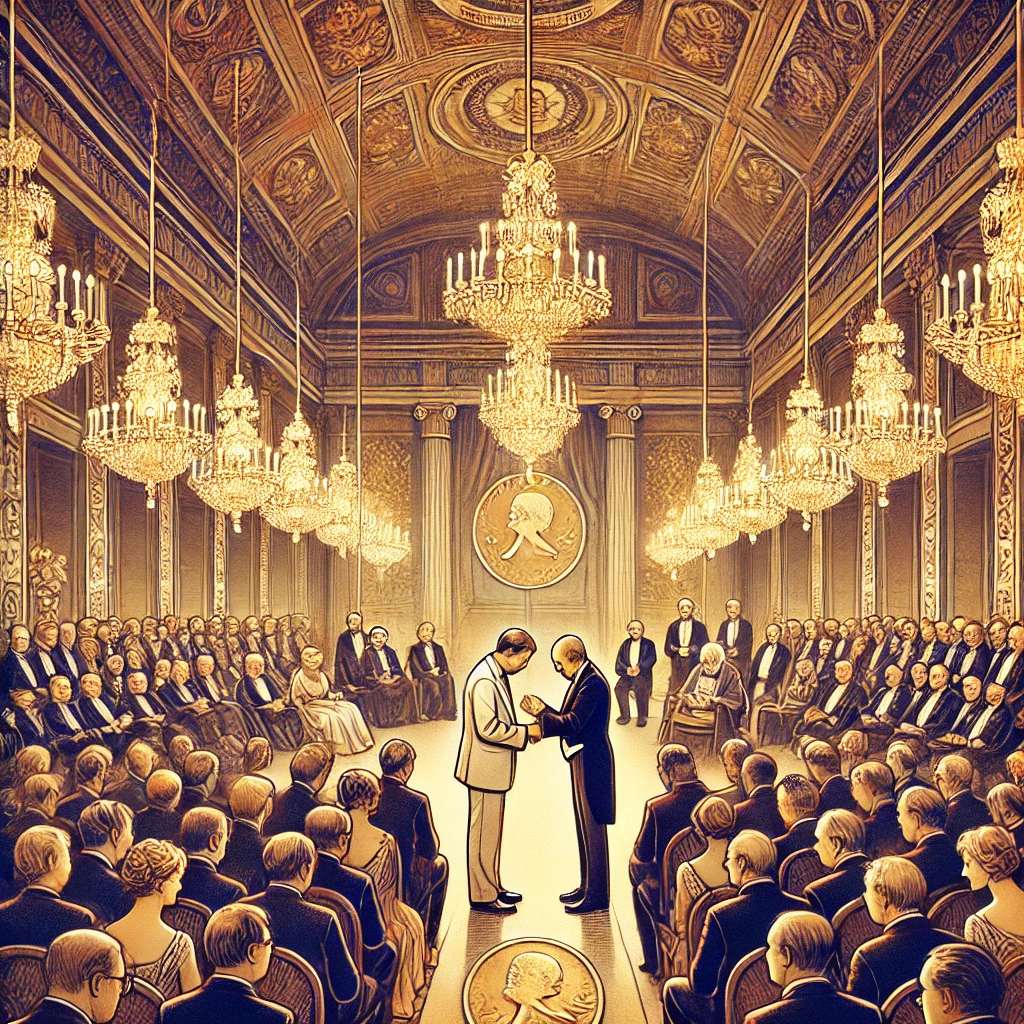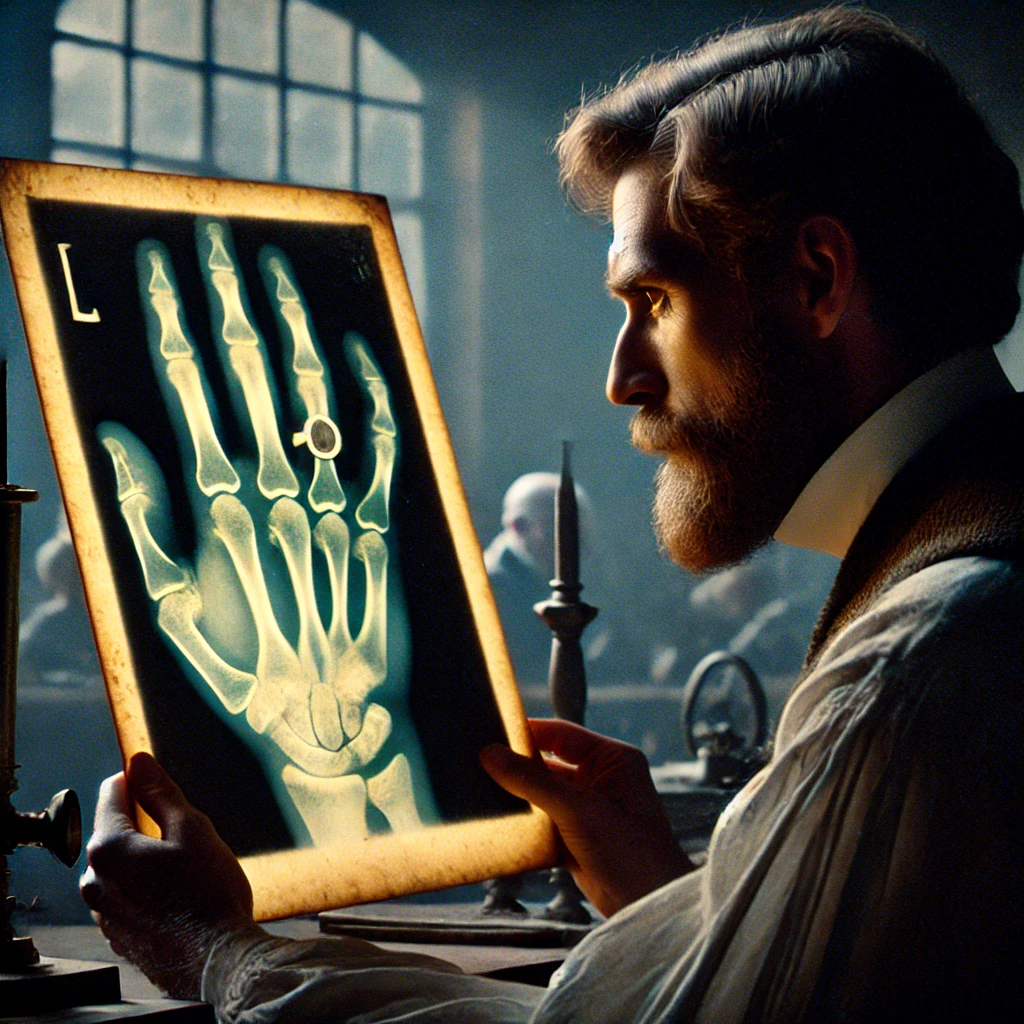The Starting Line of Automotive History: America’s First Auto Race

On this day in 1895, six pioneering vehicles lined up in Chicago for what would become the first official automobile race in the United States. The race, organized by the Chicago Times-Herald, covered a grueling 54-mile course that stretched from Chicago to Evanston and back. Though modest by today’s standards, this landmark event marked the […]
Alfred Nobel Establishes the Nobel Prizes: A Legacy of Excellence and Innovation

On November 27, 1895, Alfred Nobel, a Swedish chemist, engineer, and inventor, signed his last will and testament in Paris, fundamentally altering the course of history. Nobel dedicated the majority of his fortune to establishing a series of awards that would recognize outstanding achievements in various fields. His decision came as a surprise to many, […]
A Breakthrough in Medicine: Wilhelm Conrad Röntgen Discovers X-Rays

On November 8, 1895, German physicist Wilhelm Conrad Röntgen made a groundbreaking discovery that would revolutionize medicine and science: X-rays. This remarkable achievement not only advanced the field of medical imaging but also paved the way for diagnostic techniques that have saved countless lives. Röntgen’s discovery transformed our understanding of the human body and set […]
First Movie Projector Demonstrated in United States
The first movie projector was demonstrated in the United States on April 21, 1895, marking a pivotal moment in the history of entertainment. This innovation laid the groundwork for the cinema experience, transforming storytelling and visual artistry. Movies would soon become the most popular form of entertainment, captivating audiences worldwide and giving rise to the […]
Wilhelm Conrad Roentgen Discovers X-Rays
On this day, Wilhelm Conrad Roentgen, a German physicist, discovered X-rays while experimenting with cathode rays. This groundbreaking discovery revolutionized the field of medicine, enabling doctors to see inside the human body without invasive procedures and leading to numerous advancements in diagnostics.
